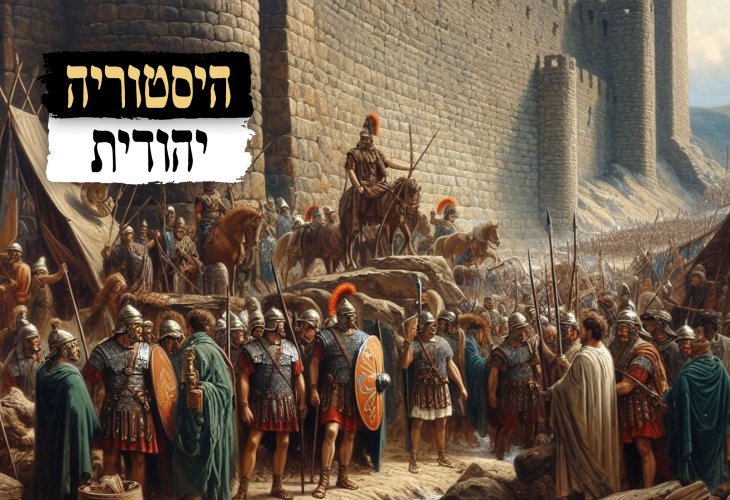A Historic Moment: The Leader who Conquered Jerusalem and Met His Fate at Sea
For the first time since Nebuchadnezzar, a foreign leader seized Jerusalem with an army. His life ended on a fisherman's boat in Egypt. Who was he?

For the first time since Nebuchadnezzar, a foreign leader seized Jerusalem with an army. His life ended on a fisherman's boat in Egypt. Who was he?
Judah Maccabee consolidated his rule by forming an alliance with Rome. The Romans, descendants of Esau, were considered related to the Jews through Abraham, which led Judah to write them a famous letter of alliance.
His brothers, who ruled after him, upheld this alliance. However, his brother's grandson, King Yannai, did not wish to maintain this connection. He opted for alliances with eastern kingdoms like Armenia and the Parthians, unaware that Rome would soon become the dominating regional power.
King Yannai's sons, Hyrcanus and Aristobulus, battled over the kingship and the high priesthood. Aristobulus was besieged in the Temple, and Hyrcanus encircled him, eventually seeking intervention from Pompey, the Roman governor of Syria, to decide their fate.
Pompey eagerly seized this opportunity, believing the time had come for the stubborn Judea to fall under Roman control. He besieged Jerusalem for three months, capturing it on Shabbat when the Jews refrained from work. Pompey's disrespectful entry into the Holy of Holies, plundering temple treasures to fund his army, transformed Judea into a Roman province.
Upon his return to Rome, two days of celebrations honored him, with Aristobulus the Hasmonean displayed in his victory parade.
Later, Pompey became entangled in Roman internal conflicts. He defeated pirates and seemingly plotted to rule Rome, drawing the ire of other Roman generals. Fleeing to Egypt seeking refuge, he boarded a fishing boat to reach the shore, only to be stabbed before landing, his body falling lifeless into the waters.
In Israel, this event was chronicled in a song found in the "Wisdom of Solomon," written during the Second Temple period.

